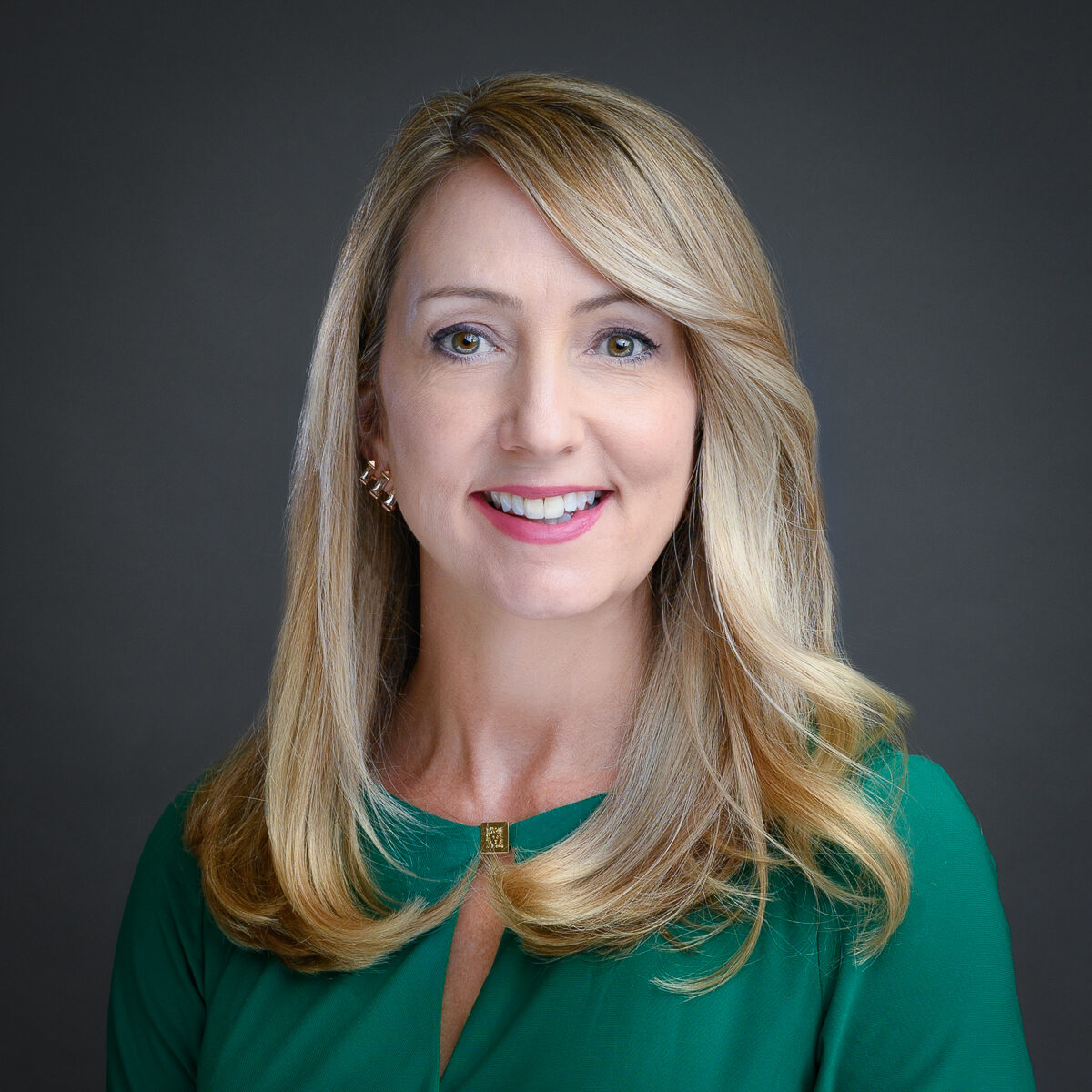
Post-Pandemic Financial Planning: Expect the Unexpected
Did the pandemic expose some devastating holes in your financial plan? You wouldn’t be alone if it did. Independent Financial Advisor Valkyrie Lang talks about the biggest impacts the pandemic had on people’s financial health, especially women. She also shares how we can push forward and fortify our financial plans to account for the unexpected.
Don’t have time to read this blog? Listen to it below!
What are some of the biggest pandemic impacts you’ve seen on people’s financial health, especially women?
The biggest impact I have witnessed through intimate meetings with my clients and having authentic talks with my friends, is a reevaluation of priorities. Without a doubt, the importance of family and spending time with loved ones has caused a shift in people’s focus from the work grind to family/home time. How that translates into financial health is women are no longer willing to step back on the “hamster wheel” of a high-pressure job and the constant daily responsibilities of raising children and household responsibilities. For some, that has meant choosing to leave their career temporarily; finding a better employment fit that allows more flexibility; or refusing to go back into an office and work remotely.
Some have decided they are ok with the loss of income and the gain of mental health.
Others now have the motivation to find a different job or career path that has more meaning. I know of many empty nesters and single women who decided to “jump ship”, sell their home and take time to travel, work abroad remotely or just downsize from their former lifestyle. All of these have financial consequences that people are willing to make due to the pandemic.
The greatest positive impacts I have seen are people starting a new business or side hustle. I have many clients who experienced a record cash flow from taking advantage of market opportunities this past year. I am a huge fan of the “side hustle” something I encourage all my younger clients to adopt while they have the bandwidth and energy to do so.
In your opinion, is America’s money mindset healthy? Or are there things that should be changed?
America, America…how I love this country and how blessed we are to be living in the Land of Opportunity. However, our American culture and relationship to work is severely dysfunctional. Our money mindset is one of consumption. If a little is good, more is better, we constantly tell ourselves. More things, nicer cars, indulgent vacations…these come at a price. The good news is consumer debt is at an all-time low. A Washington Post article from May 2021 stated,
“The New York Fed reported that total credit card balances declined by $49 billion. It was the second-largest quarterly decline in the history of the data series, which originated in 1999.” [https://www.washingtonpost.com/business/2021/05/21/credit-card-debt-trends-down-pandemic/]
Savings is crucial to financial freedom and being debt free is the foundation. Of course, not all debt is bad. Our mortgage, for instance, can be “good” debt.
To answer your question- YES! we need to change our money mindset. Our real currency is time. Time is limited, we all have access to the same 24 hours. Money can compound, grow while we are sleeping, and increase in value without our constant sweat equity. When we realize how to use our most limited resource (time) effectively, we can harness that power to increase our financial position. One of the most effective lessons I ever taught my daughter was how to identify the “true” cost of an item. The price tag may say, “$25”, however, how long do you need to work to pay for it?! She was earning $13 dollars an hour at the time. If you consider income taxes and saving 20% of your earnings, you will have to work close to 3 hours to purchase a $25 dollar item. Is it really worth it?! Is an effective test has kept me from many impulse purchases.
Do you have anything specific that you’re encouraging your clients to consider in their financial planning, post-pandemic?
Have an emergency fund equal to a minimum of 3 months of living expenses. For some people, they may require 6 months. Ask yourself, “are others dependent on my income?” “Am I the primary breadwinner?” “How much could I cut from my monthly expenses if I were to lose my job?!” “How much are my fixed expenses vs. discretionary?”
A single person may need only 3 months of savings in their Emergency Fund while someone who has a family and is self-employed may need 6 months. An emergency fund is the foundation of our “financial house”. If that need has been met, the next step would be to consider Disability Insurance if you are self-employed or do not have robust benefits at your employer. Disability Insurance is paycheck protection for when life doesn’t go as planned. When you have lived on this Earth as long as I have, then you know intimately that life doesn’t follow our plans!
Lastly, for pre-retirees, I would recommend having a long term care planning conversation with children and family. A trusted Financial Advisor or credible insurance agent can moderate that discussion. Covid’s impact demonstrated the harsh consequences to families that had loved ones in nursing care or even living independently as a senior. It was isolating and financially devastating for many families.
We are living in “uncertain times” as the media keeps reminding us. There are many things we can’t control, however, putting some basic financial planning in place gives us a bit more control when things get crazy.
During the COVID-19 pandemic, there were many Americans faced with the staggering situation of long-term care for their parents or elderly relatives. What are some financial planning steps that anyone can take to ensure they’re in a place where they can effectively take care of loved ones?
Based on the hundreds of conversations I have had with families about long term care planning, I can tell you that when a long term care event happens, everyone is unprepared. The emotional stress is overwhelming and when combined with financial stress, it can tear families apart. Very few people are in the position to take care of their loved ones. Many women WANT to be able to help in any way possible, however, actual physical caregiving can be a challenge. We live states apart from our families, we have full time jobs, we are raising children, saving for our own retirement, struggling with health issues of our own. One of the first questions I ask my clients is, “Is there anyone for which you may be financially responsible in the future, like an elderly parent or aunt, or even a special-needs child?” Even if the answer is, “no”, is there a chance you would be expected to coordinate care? Have you had a conversation with this person about the expectations? Everyone needs to start the discussion with their family about long term care planning. An informational guide to help with this topic can be downloaded here.
In our modern world, sometimes the best support we can give is to be a “Care Coordinator” as opposed to a physical care giver. Of course, all families are different and it’s important to identify how your family is comfortable with the responsibilities that can come with aging. Lastly, it’s important to note that long term care insurance is something you must qualify for based on your health. Some people wait until it’s too late and they are unable to secure coverage due to their health history. Insurance can add a layer of support both as a means to help offset the cost of care and having the resources of the insurance company, who has experience in navigating the world of long term care.
What would you say to the woman who wants to get a better grasp on her financial health?
Clarity, clarity, clarity. The first step is to create a net worth statement. Your net worth is the result of subtracting your liabilities from your assets. Hopefully, that number is positive! If it’s not, just having a barometer for where you can be a motivator for change. We spend more time planning our vacation than we do for our financial goals or retirement. Have a monthly financial meeting with yourself and review where you are and keep yourself accountable to where you want to go. Open the dialogue with your spouse, if you haven’t already. Do not give away your power and remain ignorant of your situation.
Fund your emergency savings, put away 20% of your income towards retirement, talk with your friends about money. We need to make money a judgement- free conversation and stop making it taboo. Lastly, find a trusted Advisor who has your best interests at heart and start a long term relationship. Be willing to invest in yourself and pay for advice. You wouldn’t think of building your own house, don’t try and “DIY” every aspect of your planning to save a few dollars. Any Advisor worth their salt will save you money in the long run.

We are honored at Ronald Blue Trust to have the privilege to serve women from all walks of life — professionals, mothers, daughters, retirees, widows, and students across the nation providing biblically-based wisdom for their finances. Our advisors work hard to provide as many useful resources as they can to guide you and your family in gaining clarity and confidence, and leaving a lasting legacy. Click here for more information!

Valkyrie Lang began her career in financial services in 2015 after transitioning from running her own company for 15 years. She wanted a career of service and the ability to positively impact her client’s lives. She was a three-time Executive Council qualifier during her work tenure at New York Life and nationally recognized for her expertise in long term care planning. Val is a frequent guest speaker at women’s events on topics such as “Creating Financial Independence for Women” and healthcare planning in retirement.
Val’s mission is to support entrepreneurs, especially women, in creating financial independence. She is a passionate advocate for assisting and educating her clients and their families through the unique transitions they can face throughout their lives. Her core belief is that finances and investments should reflect our values. Val is committed to serving her clients and their families with respect, non-judgement and excellence. She is currently an independent Financial Advisor offering securities and advisory services through Lincoln Financial Securities Corp., Member SIPC at 109 South Harris Street, Suite 109, Round Rock, Tx and working with her team at Chisholm Trail Financial Group. Lincoln Financial Securities is not affiliated with Chisholm Trail Financial Group. She has been a Sponsor of the Austin 4word Women Chapter since 2015.
LFS-3711324-081021